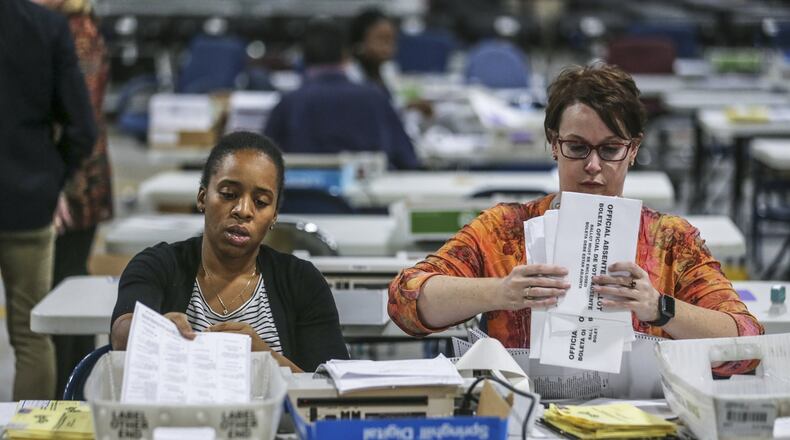Gwinnett County commissioners Tuesday rejected requests to spend nearly $3 million to make absentee voting easier for residents.
The county’s Board of Registration and Elections asked the government to spend $2.4 million to send absentee ballot applications to all active registered voters in the county, a number they expected could reach 600,000 people.
The board also requested county commissioners spend about $516,000 to pay for return postage on absentee ballots in the county.
Commissioners rejected each proposal in a 3-2 vote, with Republicans voting against the measures and Democrats voting for them. The elected officials did not discuss the reasons for their votes.
John Mangano, the nonpartisan chair of the elections board, said he had hoped commissioners would approve the measures, which were passed by his board with 4-1 votes.
“I’m disappointed, but in a way, I’m not surprised,” he said.
Penny Poole, president of the Gwinnett NAACP, said the decision not to send ballot applications or pay for return postage shows commissioners “do not represent the people that live here.”
“We knew this would happen,” she said.
Poole said advocacy groups have already been sending ballot applications to residents. Additionally, the state has created an online portal for people to apply for ballots. An absentee ballot, Mangano said, is “not that hard to get a hold of.”
While the return postage won’t be paid, the county will add 15 ballot drop boxes at library locations, in addition to the seven that were available beginning this spring.
Kristi Royston, Gwinnett’s elections supervisor, said there were already more than 75,000 requests for absentee ballots by the end of the day Monday. The county is also processing about 20,000 new voter registrations.
Georgia’s secretary of state is handling absentee ballot applications for all counties in Georgia through mid-September. The lone exception is Gwinnett — where ballots are required to be in English and Spanish and are larger than normal.
The secretary of state’s office doesn’t plan to give Gwinnett state money to mail or process their large ballots, but they are talking about potential solutions, such as finding ways to reduce the size of the ballot.
The county has had some trouble finding a vendor to send its absentee ballots, in part because the dual-language ballot requires a larger size envelope. Mangano said he thinks a vendor has been identified.
Staff writer Mark Niesse contributed to this story.
About the Author
Keep Reading
The Latest
Featured


